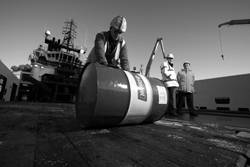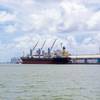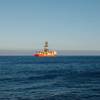Castrol Goes Further on Cylinder Lubricant Choice
Drawing on OEM reports and its own engine performance tests, Castrol Marine has strengthened its conviction that optimum performance, when slow steaming, can only be achieved by having a range of cylinder oils available for the customer.
The company says its research and development, OEM recommendations, market trends, legislation and, most importantly, customer feedback have combined in developing its latest cylinder lubricant offer, based on the realities of slow steaming, fuel sulphur
content and low feed-rates. Its investigations show that each vessel should use a cylinder lubricant based on its predominant operating conditions, and while 40 BN cylinder oil suits vessels predominantly operating in ECAs, cylinder oils of 70 BN and above are better suited
to those vessels regularly slow steaming, to ensure piston ring packs and liners remain in excellent condition.
“The idea of a single, mid range cylinder oil solution for all vessels as sulphur limits are reduced may be seductive, but our field evaluation shows this does not offer the best margin of safety,” says Paul Harrold, Castrol Technology Manager Marine & Energy Lubricants. “Slow steaming has complicated traditional assumptions concerning engine performance because marine engines are not designed to operate below 85% power for prolonged periods. At lower loads, the cylinder oil’s feed rate is reduced, reducing the available BN to neutralise acids and reducing the oil film thickness. This can mean lubricants degrade, increasing the potential for acidic corrosion and increased wear rates."
“Lower engine operating temperatures caused by slow steaming further increase the risk of cold corrosion,” says Mr Harrold. For owners, this could mean unscheduled and costly maintenance. Severe cases may require liner and ring reconditioning or replacement, Castrol warns. “Replacing liners on a 14-cylinder engine could cost over US$1 million,” Mr Harrold points out.
“Higher BN lubricants provide greater neutralisation and hence better corrosion protection across the fuel sulphur range while slow steaming.”











